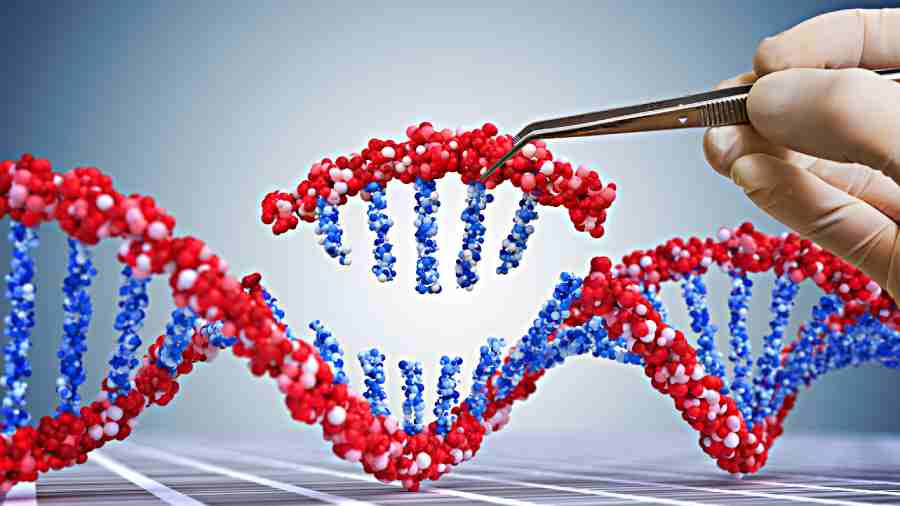If you are fascinated by science fiction, you will enjoy this subject. Synthetic biology is an emerging field which can quite literally transform science fiction into fact. It is a promising area of multidisciplinary and innovative research. It includes engineering organisms or its components and redesigning or creating new biological parts for useful purposes.
This field has biology for fulcrum and involves principles of chemistry, computation, physics, material science and engineering.
Very recently, there was a major breakthrough where a group of scientists from the University of Cambridge in the UK successfully developed a “synthetic” embryo with a beating heart and functional brain using stem cells (the cells within one’s body which have the capacity to develop into different organs). This knowledge can help in an indepth understanding of the development process underway and also make transplantation easy, since synthetic organs can be generated in the laboratory.
Sangram Bagh, who is a fellow of the Royal Society of Chemistry and associate professor in the biophysics and structural genomics division of Calcutta’s Saha Institute of Nuclear Physics, says, “Our lab built a biocomputer by engineering bacteria which can solve simple maze problems. Synthetic biology can do things that could not be done before and is thought to be able to solve the next generation challenges in medicine, materials, energy, climate and space travel which conventional biotechnology and genetic engineering cannot. The primary objectives of our research are development of biocomputers and bio-AI with engineered cells and their applications. It has enormous potential for both space bioengineering and future medical technologies.”
The opportunities in synthetic biology are significantly extensive. For example, it is possible to detect any aberrant parameters of the blood (such as high insulin or uric acid) and fix such anomalies using certain cellular implants.
Then, take the case of the rise in antibiotic resistance which leads to the generation of superbugs or the dire need to detect cancer early — harnessing the principles of synthetic biology will one day help in addressing these.
Researchers have also forayed into re-engineering plants with leaves that turn white in the presence of a bomb and are trying to employ genetically- altered bacteria to produce greener fuel alternatives.
So, who can study synthetic biology? “Synthetic biology is an interdisciplinary area that works at the intersection of biology, engineering, physics and chemistry. Students from all backgrounds can therefore work in this field,” says Bagh. And this is why a typical synthetic biology lab has researchers with varied specialisations.
Another facet of synthetic biology is using artificial cells for research. Artificial cells comprise engineered materials or biological imitators [mimics] which are not natural but used to understand the inner workings of a living cell. “During my PhD at the University of California in San Diego in the US, I was very excited to work on artificial cells,” says Ahanjit Bhattacharya, who is now a postdoctoral researcher in the department of chemistry at Stanford University in the US.
He continues, “My research had to do with making compartment structures for artificial cells. I also developed a unique porous material called lipid sponge and showed that it mimics cellular organelles such as endoplasmic reticulum or subcellular components present inside a living cell. For my postdoctoral research, my previous experience with artificial cells inspired me to work on viruses. Quite fortuitously, the Covid-19 pandemic made me interested in the clinical aspects of viruses. Currently,I am working on developing minimalistic experimental models of viral infection using artificial cells.”

Sangram Bagh in the lab. Photo: Ishani Banerj
Ahanjit had done an integrated master’s in chemistry from Indian Institute of Technology in Kharagpur. He had been fascinated about the origin of life since his school days, which led him to pursue a career in synthetic biology and artificial life. He says, “Asking questions is the first step towards becoming a scientist. There are no bad or stupid questions, so never feel shy to ask questions.”
Ahanjit’s advice to college and university students is to grab any opportunity to work in a research lab. Interacting with seniors, seeking guidance from professors and engaging in short training experiences from research institutes can, according to him, help in gauging ones true calling and assist in narrowing down the options for a career path.
The field of biology is in constant flux and these newer disciplines of biology are interesting and satisfying. At the same time, they are challenging to venture into. If you too dream of becoming a scientist then take cue from these passionate researchers.










